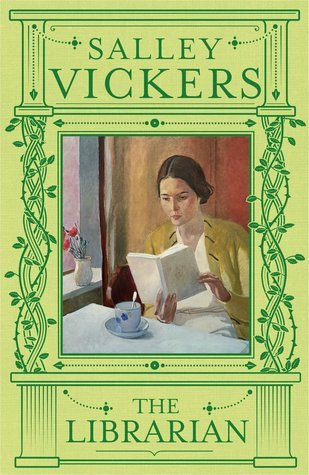What do you think?
Rate this book


384 pages, Paperback
First published April 26, 2018
’It’s not “weird”, Alex. There was a move to close the Children’s Library and Granny was all mixed up with it somehow. Now it’s threatened with closure again so she’s agreed to speak at an event which they hope might help to keep the library open.’ ‘I don’t see why we need libraries,’ Alex said. ‘You can get anything you want off the internet.’ His sister, who was of an age to enjoy going against a popular tide, sighed audibly and their mother said, ‘Yes, but how do you know what to look for? That’s why libraries are so important. Without the library, Granny might not have become a writer herself.’ ......
...... My own life was transformed by one young woman who worked in this library, Miss Sylvia Blackwell, who, single-handed, helped me to enter worlds and find the words to describe them that I should never otherwise have found.
By rights, Miss Crake should have been the Trustee. If this was a children’s book she would be, she thought crossly.
Hugh had lied to her. She knew this as surely as she had ever known anything. He had not bothered to read, or not all through, I Capture the Castle, with its bittersweet ending, where a girl’s love in the end comes to nothing.
Elizabeth could see them in her mind’s eye, the slight fair-haired woman with the grey-green eyes with the tall man in horn-rimmed specs, almost as if it was a memory she had forgotten or laid aside. In one of her books they would have found each other, finally, sometime, somewhere.
This is madness, she said to herself. I’m involved with a married man. What a cliché ......
.... It’s a cliché to say your wife doesn’t understand you but I hope you’ll forgive my saying that Jeanette doesn’t fully understand me.
Is this too unbearably pompous?’
He’s an unusual child with an unusually well-developed political sense
Only fools disregard children’s literature. Clarity of vision is shed with childhood but one can sometimes recover a glimpse of it in the best children’s literature.
Aloud she said, ‘Myself, I think children know more or at least better about love than adults. It’s part of the magic for them. Look at Tom’s Midnight Garden.’
As you can tell, I am a passionate, a passionate, supporter of libraries, especially for children who might otherwise have no access to the resources of children’s literature. Children are the citizens of the future and what they are fed and nourished on will form the destiny of our world and the destiny of our beleaguered planet. We have a duty, a moral duty, to ensure that not only the stomachs of our children are fed but also their imaginations. We do not’ –here she paused and swept a glance around her audience –‘we emphatically do not want to find that we have reached such a state of dearth in our society that we must provide food banks for the imagination as well as, as we so regrettably have to do today, for the physical body. Up and down the country there are local libraries, granaries of rich supplies, potential feasts of nourishment, often gifted, as this library was, by benefactors for the good of children, their children and the future of our children’s children and our children’s future children’s children, which it is sheer wickedness to waste and destroy.’
‘But we also need guardians of this wealth, to ensure that it reaches those who may not know they are hungry. our civilisation –a civilisation that is now under threat.’

"I still read children's books, mostly. I, I suppose I just prefer them."
"Why? I mean, why do you prefer them?"
Never having articulated this to anyone, Sylvia looked down at the book she'd been reading. It was a strange book, one Mrs. Jenkins had introduced her to, but it was a strangeness that had spoken to something deep inside her and it had become an old friend.
"Maybe," she said hesitantly, "maybe it's because children's authors can write about magic, other worlds, and be taken seriously. I mean, suggest that somewhere, even if it's hidden, there's another reality as real as the everyday world we take for granted that enlarges our sense of ordinary reality, gives it more meaning, if you see what I mean."
